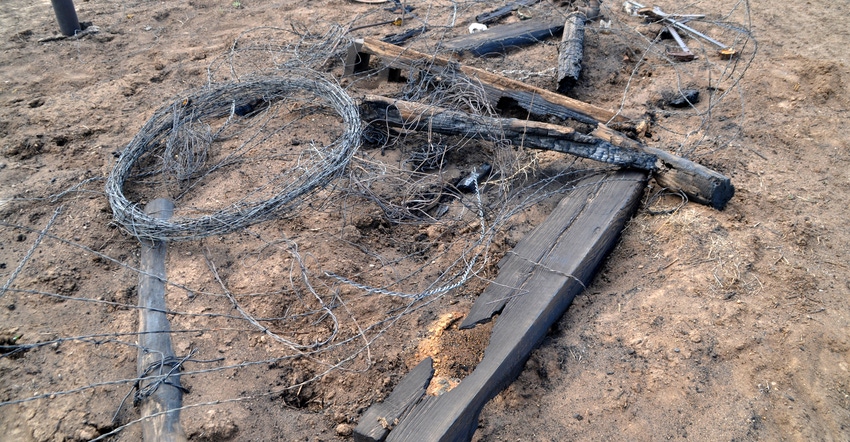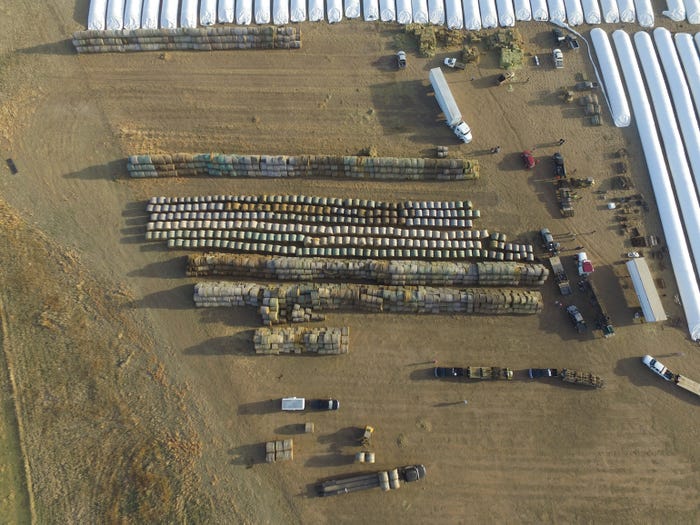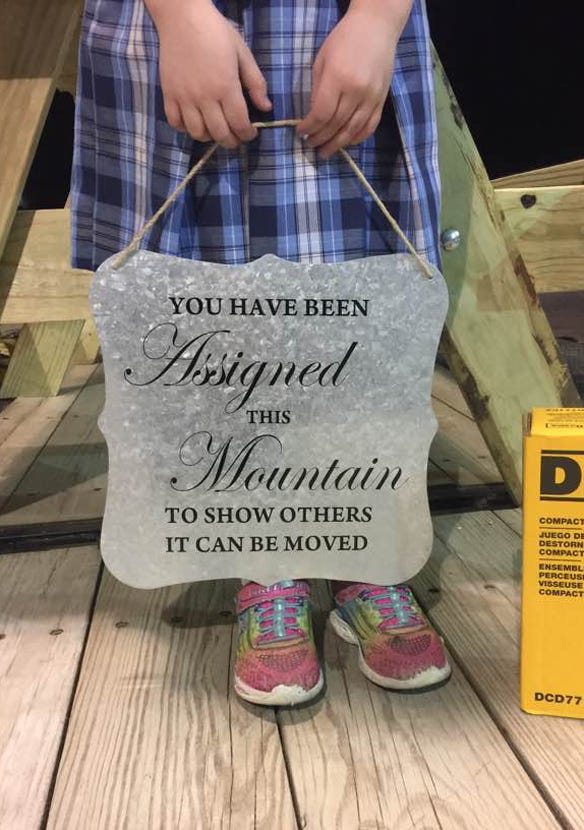
As wildfires erupted three weeks ago, burning 1.5 million acres across parts of Kansas, Oklahoma, Texas and Colorado, Illinois farmers watched in horror, learning of lost pasture, cattle, fences, homes and even people. It didn’t take long, however, for them to figure out how to help.
Over the past several days, convoys of trucks hauling hay and fencing supplies have headed west, delivering solace and support to ranchers on some 651,000 acres that were burned in Kansas. More than 500,000 of those acres were located in just two southwest Kansas counties: Comanche and Clark. According to Scarlett Hagins of the Kansas Livestock Association, that’s the area that’s referred to as the Starbuck Fire.
“There’s been an overwhelming response with hay, and it’s still coming in,” Hagins says. “The next immediate need is fencing supplies. When it arrives at the drop-off point in that area, it goes fast.”
It’s hard to quantify the amount of destroyed fence, but Hagins says it’s easily thousands of miles’ worth. “Some ranches have lost 300 miles, some lost 200.”
Moro, Ill., farmer Beth Dorsey helped coordinate a load of fencing supplies, largely donated by individual Illinois cattle producers and local FFA chapters, which her family helped deliver to Ashland, Kan., this past weekend. Their pallets of posts and barbed wire went directly to the Giles family, commercial Angus breeders who lost 100 miles of fence, three homes and half their cow herd.
“It’s unimaginable. We hope the Giles family and many others will be able to recover, but it will take years,” Dorsey says. “Our fencing supplies will only cover between 8 and 11 miles. We’re thankful for the opportunity to help.”
Jenny Jackson and Evan Marr rallied a similar crew, though they focused on hay donations. From Jacksonville, Jackson and Marr took the idea to their Cass-Morgan Young Leader group. What started with two loads of hay turned into six semiloads, which turned into an 18-vehicle convoy.

HAY THERE: Hay and supplies from efforts by Jenny Jackson, Evan Marr and the Cass-Morgan Young Leaders group are delivered to the central drop-off point in Ashland, Kan. (Photo by Court White)

“Evan and I had more phone calls than we could keep up with. Farmers and Farm Bureau members from all across the state were reaching out to us with donations,” Jackson says. “We picked up semiloads in Mattoon, Washington, Rochester, Illiopolis, and multiple from the Cass-Morgan area. We had no idea that so many people would jump in and contribute.”
Their convoy left Jacksonville at 6 a.m. Saturday with 11 semis loaded with 30 round bales per load, three van trailers with 400 square bales each, two gooseneck trailers with fencing supplies, and two additional pickups with tools and supplies. Total: 330 round bales and 1,200 square bales.
“In agriculture, we stick together,” Jackson describes. “We jump right in when needed without being prompted. That’s just what we do — we look out for each other.”
Jackson worked with Kansas Farm Bureau and Ashland Feed and Seed; Ashland is the hub for donations and organizes deliveries to ranches in the area. She says, “Jeff Kay at Ashland Feed and Seed told me, ‘We can’t thank you enough. We hope nothing like this happens to you, but know that if it did, we would be there to help.’ That’s what it��’s all about.”
Further north in Illinois, Don Brown and Ron Tombaugh, both with the Illinois Forage and Grassland Council, are soliciting hay and fencing donations. Instead of delivering hay, they’re selling it at auction and using the cash to purchase fencing supplies. Brown says at 1,000 miles away, it doesn’t pay for them to ship hay; they can supply more for the fire-affected ranchers by converting it to cash.
Tombaugh will make a delivery of the fencing supplies — which to date includes pallets of barbed wire and 500 pounds of staples — in the coming days to Lance, Okla., about 30 miles south of Ashland, Kan.
“We’ve heard a lot of stories, and we’re trying to help where we can,” Brown says. If you’d like to donate to their effort, call Brown at 815-238-8372.

HELPERS: “It’s unimaginable. We hope the Giles family and many others will be able to recover, but it will take years,” says Beth Dorsey, who helped coordinate and deliver fencing supplies to the Angus breeders. “We’re thankful for the opportunity to help.”

To donate to Kansas ranchers, you can also visit kla.org and click on the online donation link. Hagins says 100% of every donation will go directly to ranchers — there’s no overhead, no administration fees, no credit card fees. You can also send a check to: Kansas Livestock Association, 6031 SW 37th St., Topeka, KS 66614. Make checks out to Kansas Livestock Foundation, with “wildfire relief” in the memo line.
As of press time, the federal government had not declared the area a disaster. Local officials have applied for the designation and expect it to come soon, which will make producers eligible for federal disaster assistance.
“From all over, the response has just been outstanding,” Hagins says. “We are so appreciative and so thankful for it. Donations continue to come in, and we are getting money pushed out as soon as we can.”
About the Author(s)
You May Also Like






